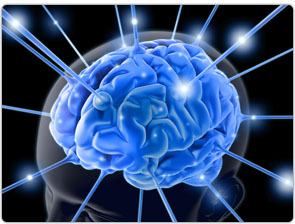Scientists identify brain's tiny timekeepers
 Washington, Oct 26 : How does your brain recall that you brush your teeth before you took a shower, and not the other way around? A study has now identified groups of neurons in the primate brain that code time with extreme precision.
Washington, Oct 26 : How does your brain recall that you brush your teeth before you took a shower, and not the other way around? A study has now identified groups of neurons in the primate brain that code time with extreme precision.
Keeping track of time and remembering past events is one of the brain's most important tasks, amid the welter of sights and sounds that it processes.
For decades, neuroscientists theorised that the brain "time stamps" events as they happen, allowing us to keep track of where we are in time and when past events occurred. However, they couldn't find any evidence that such time stamps really existed -- until now.
Ann Graybiel, professor at the Massachusetts Institute of Technology (MIT), says: "All you do is time stamp everything, and then recalling events is easy: you go back and look through your time stamps until you see which ones are correlated with the event."
That kind of precise timing control is critical for everyday tasks such as driving a car or playing the piano, as well as keeping track of past events.
The discovery, by a team led by Graybiel, could lead to new treatments for diseases such as Parkinson's disease, where the ability to control the timing of movements is impaired.
Researchers trained two macaque monkeys to perform a simple eye-movement task. After receiving the "go" signal, the monkeys were free to perform the task at their own speed.
The researchers found neurons that consistently fired at specific times -- 100 milliseconds, 110 milliseconds, 150 milliseconds and so on -- after the "go" signal.
"Soon enough we realised we had cells keeping time, which everyone has wanted to find, but nobody has found them before," says Graybiel, who is also an investigator in MIT's McGovern Institute for Brain Research.
The neurons are located in the prefrontal cortex, which play important roles in learning, movement and thought control, says a MIT release.
Key to the team's success was a new technique that allows researchers to record electrical signals from hundreds of neurons in the brain simultaneously, and a mathematical way to analyse the brain signals, spearheaded by team members Naotaka Fujii of the RIKEN Brain Institute in Japan and Dezhe Jin of Penn State.
These findings were published in the Proceedings of the National Academy of Sciences. (IANS)